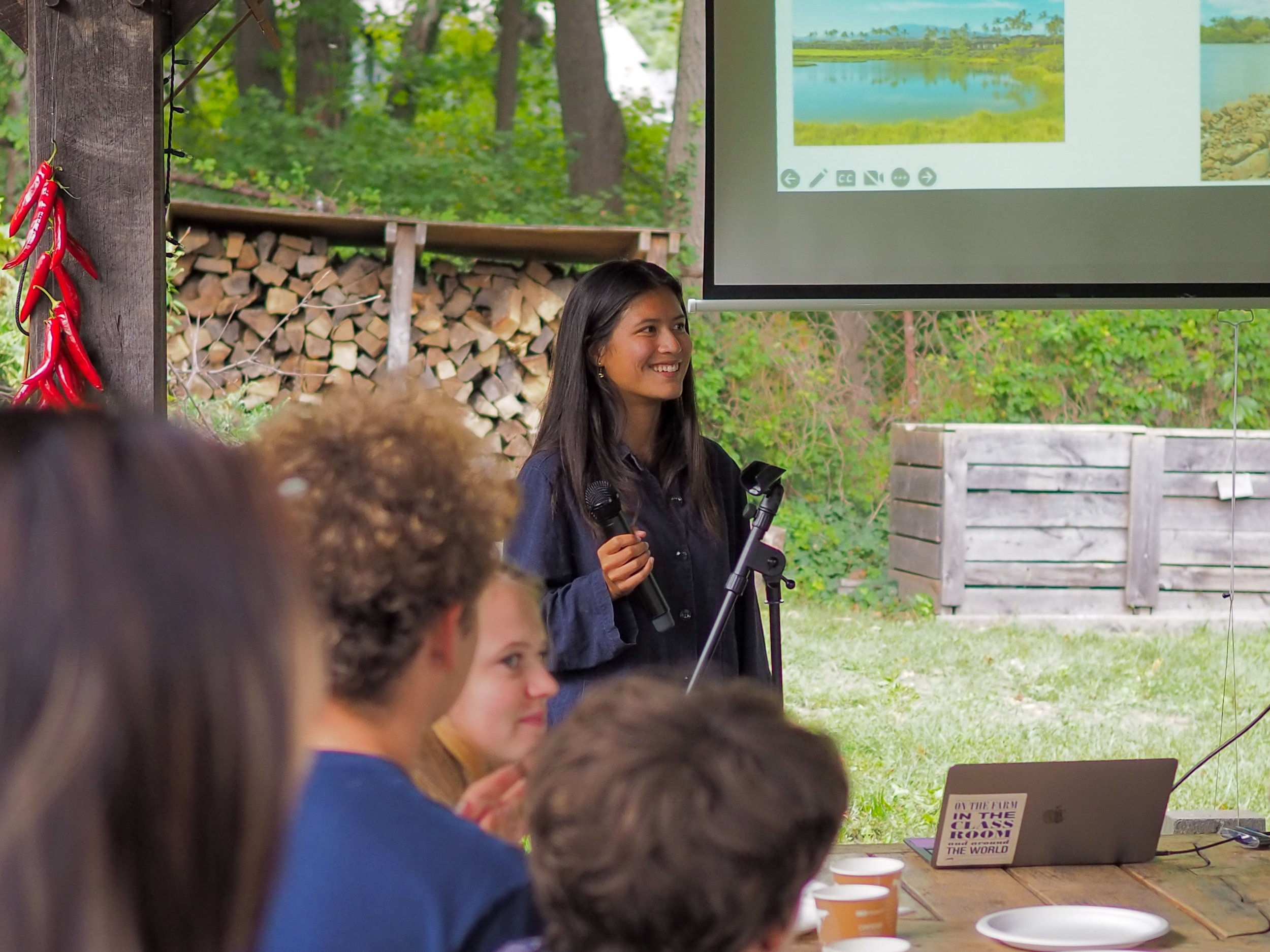
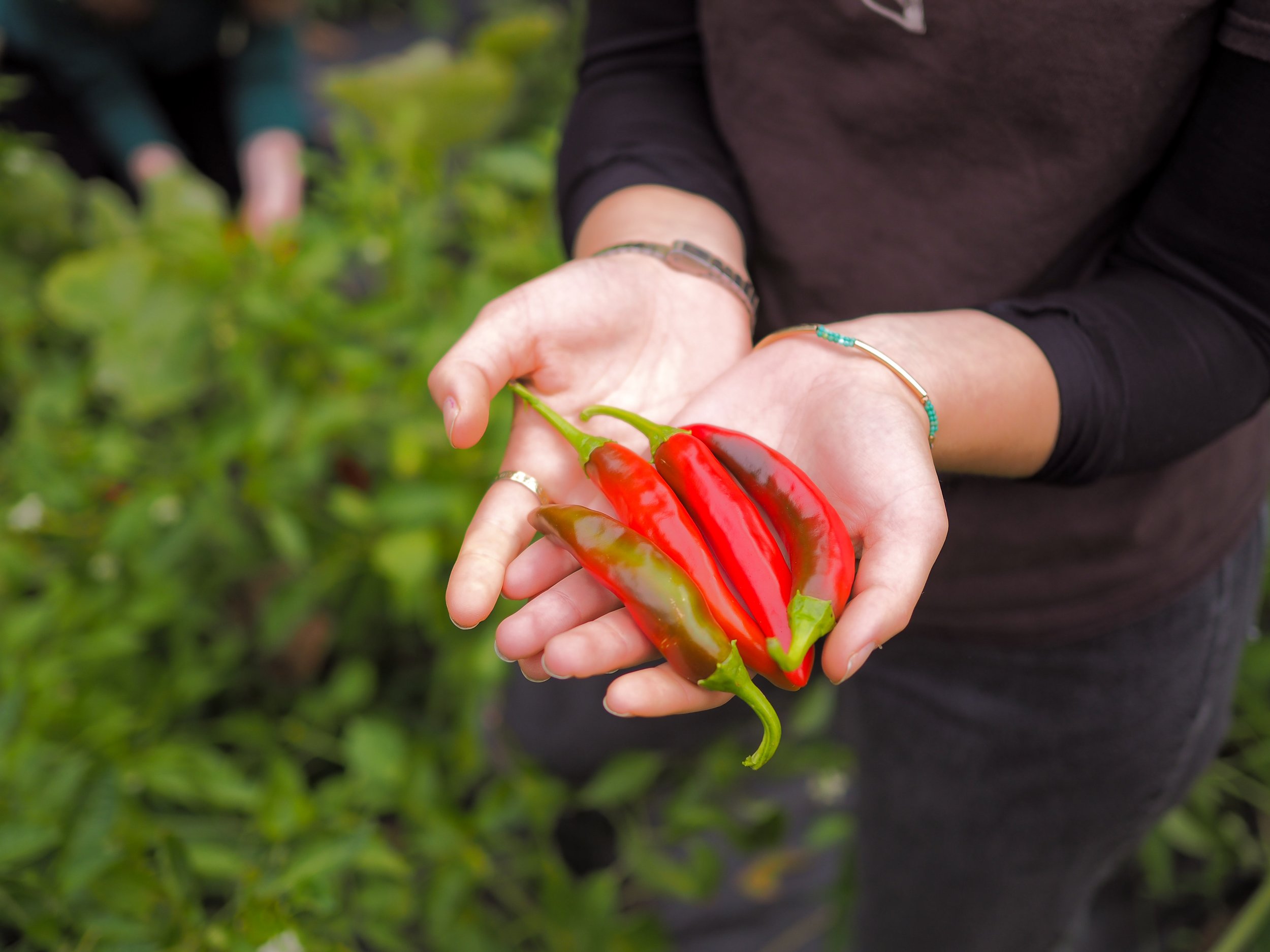
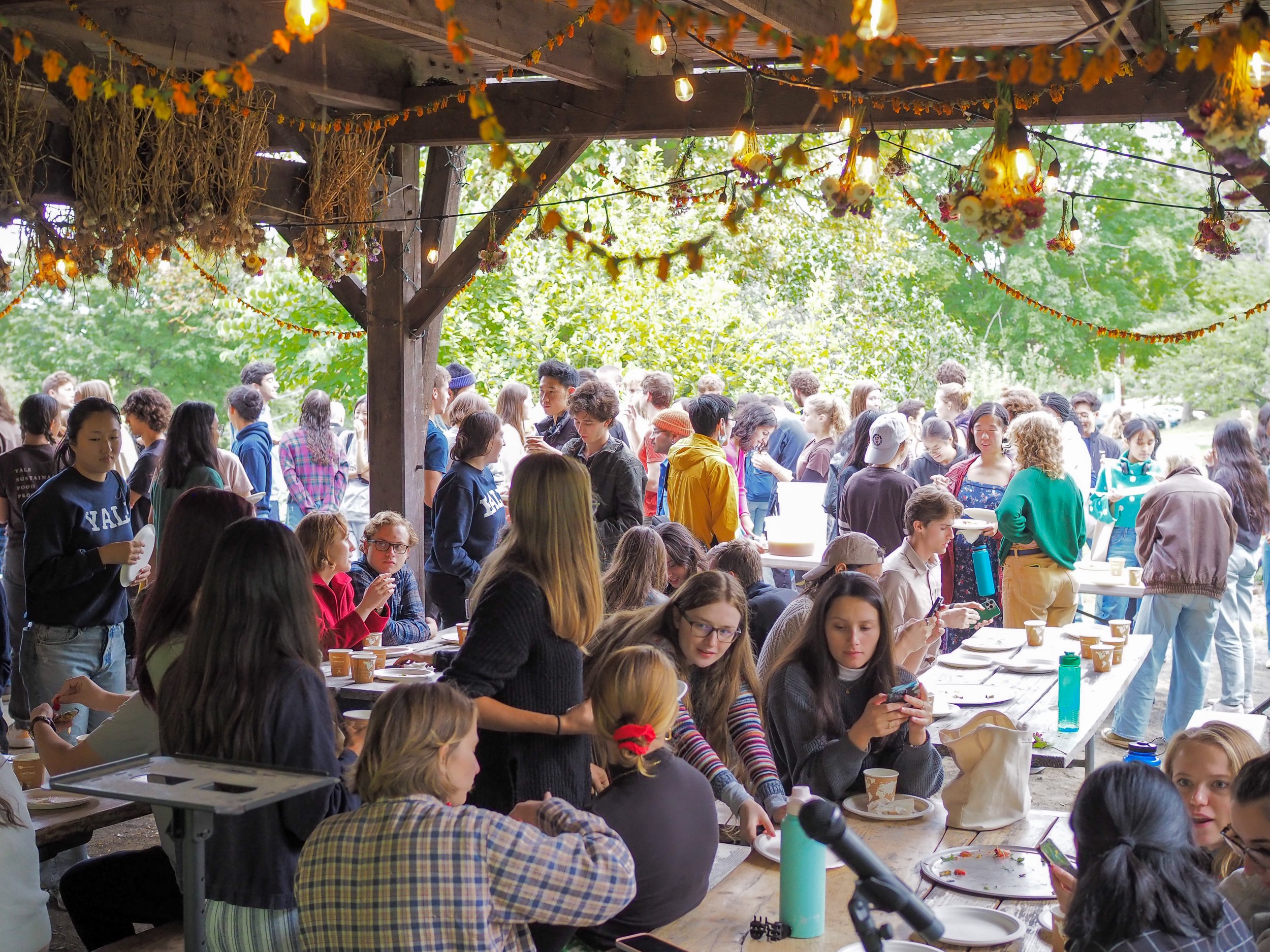
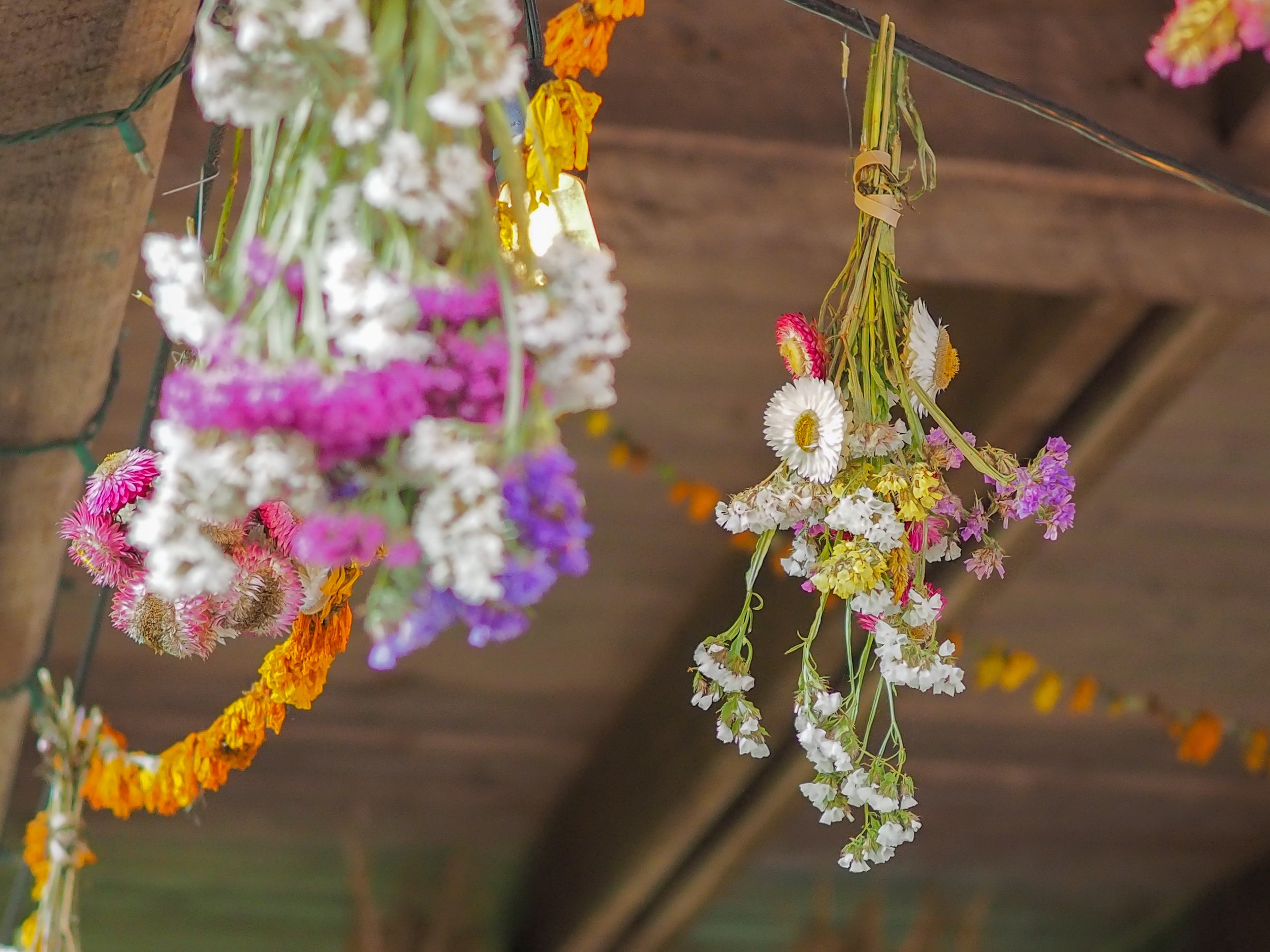
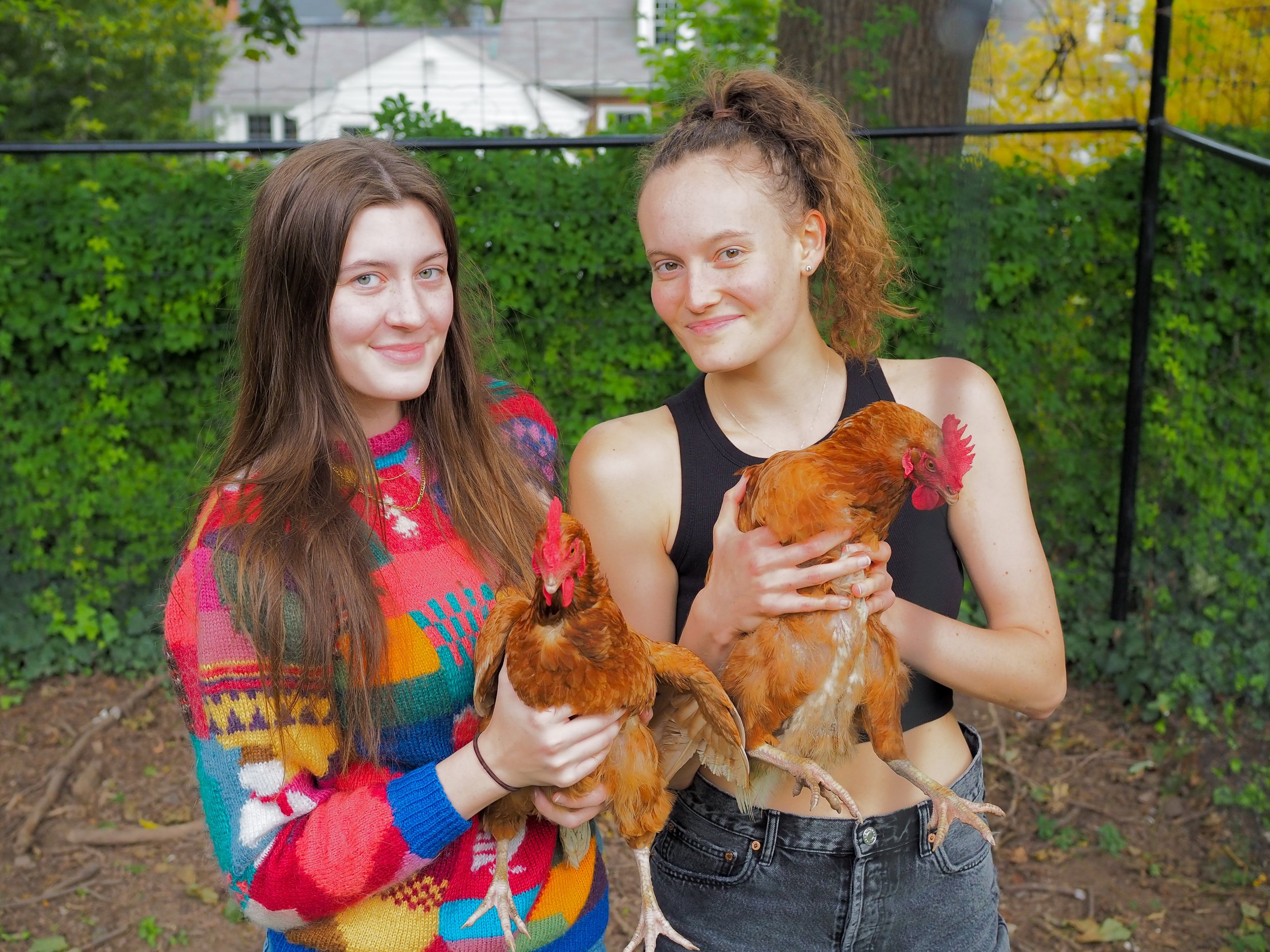
Making the most of the last few weeks of light-sweater weather, students showed up to the Farm in a near-record turnout for this Friday’s workday and knead 2 know. Students got right to work—mulching perennials, cleaning and re-bedding the chicken coop, hand-weeding the carrot bed, removing dead blooms from flower plants (“deadheading”), harvesting peppers and marigolds, and stringing beautiful flower garlands and non-traditional chile ristras. The Lazarus Pavillion looks extra special this month, decorated with drying chiles, dried flower bouquets featuring Strawflowers and Statice, and marigold garlands which will be used to make natural dye.
After an accomplished afternoon of work, students migrated to the Lazarus Pavilion to enjoy pizza and cider made by our culinary events team. My personal favorite pie of the week may have been the sweet apple compote pizza, but they were all delightful. The culinary team took a brief intermission from throwing their forty balls of dough and community members paused their meal to listen to a knead 2 know by Grace Cajski ’24, a YSFP communications manager who writes the weekly YSFP newsletter! Grace is a 2021 Global Food Fellow who majors in English and Environmental Studies with a concentration in Marine Conservation. Cajski, who has family in Oʻahu, presented her research on Hawai’ian fishpond aquaculture. Cajski impressed upon listeners that Hawai’i is not “just a paradise,” but a place with rich history and unique agricultural traditions. Cajski described how farmers grow fish in estuarine pond. Baby fish can swim in, but larger, grown fish are stuck in the pond. Fishponds are the first form of aquaculture on the Pacfic Rim. Cajski described the “art” and “balance” of this reliable, sustainable food source, and the ways that colonization and invasive species threatened—and continue to threaten—this equilibrium. Cajski talked about the implications of climate-induced sea-level rise and how modern systems of land (or sea) ownership can make it difficult for indigenous stakeholders to steward their ancestral land. Cajski also discussed some potential solutions proffered by the tourism and education industries, as well as the U.S. Navy. While it was chilly and brisk on the Farm, Cajski’s captivating presentation brought us to warm, tropical waters and provoked new insights.
We are thrilled by the number of people who have been joining us at the Farm. Please keep coming, and bring your friends! We love having you here.
